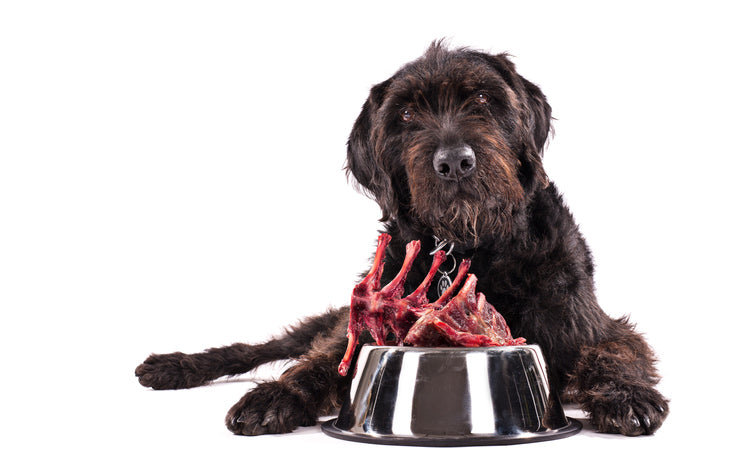Raw Feeding: Why Dogs Can Eat Raw Food Safely

Many dog owners are hesitant to feed their pets raw food, concerned that it may cause illness or harm to their dogs. However, the biology of dogs suggests that raw food is not only safe but also provides numerous health benefits. In this blog, we will discuss why it is safe for dogs to consume raw food and how their biology supports this.
Dogs are carnivorous animals, and their digestive systems are designed to process raw meat. Their stomachs are highly acidic, which helps to kill bacteria and other pathogens that may be present in raw meat. In contrast, human stomachs are less acidic, which makes it more difficult for us to digest raw meat.
Another key aspect of a dog's biology is their teeth and jaw structure. Dogs have sharp teeth and strong jaw muscles that are designed to tear and chew through raw meat and bone. Their digestive tracts are also shorter than humans, allowing them to process raw meat more quickly and efficiently.
Additionally, dogs have a shorter digestive transit time than humans. This means that food moves through their digestive system more quickly, reducing the risk of bacterial growth and contamination.
While it is true that there is a risk of bacterial contamination in raw meat, this risk can be minimized by sourcing high-quality, human-grade meat and following proper food safety protocols. Many raw feeders choose to feed their dogs a balanced diet that includes muscle meat, organ meat, and bone content to ensure that their dogs receive all of the necessary nutrients.
In fact, many dog owners have reported that their dogs have experienced numerous health benefits from eating a raw diet, including improved digestion, healthier skin and coat, and increased energy levels.
In conclusion, it is safe for dogs to consume raw food, and their biology supports this. Dogs have highly acidic stomachs, strong teeth and jaw muscles, and a shorter digestive transit time, all of which are designed to process raw meat. While there are risks of bacterial contamination, these risks can be minimized through proper food safety protocols. If you are interested in feeding your dog a raw diet, consult with a veterinarian or a professional raw feeding expert to ensure that your dog receives a balanced and nutritious diet.


